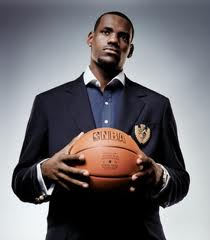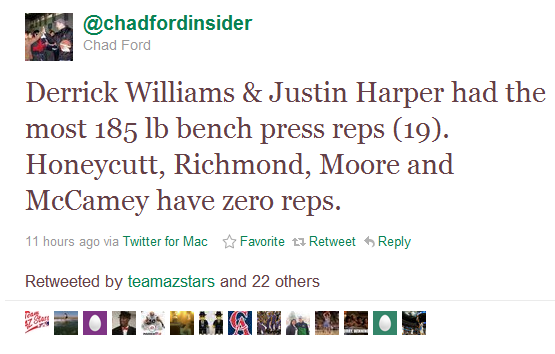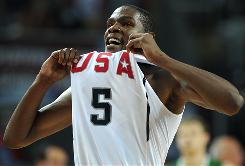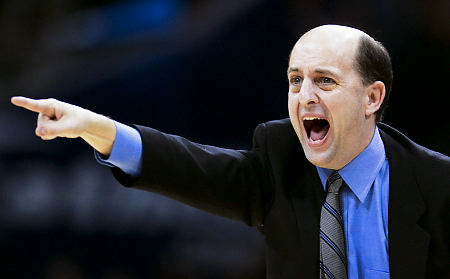Why You're Wrong about LeBron James
Subtitled : I am not sure I completely believe what I am about to argue in the post either, but someone had to take an opposite position.
-----------------------------------------------------------------------------------------------
The facts of the case are these:
1. Last summer two-time league MVP, consensus best player in the NBA, and one of the best all-around players in league history LeBron James, a free agent no longer under contract with his team of seven seasons the Cleveland Cavaliers, elected to sign a contract to play for the Miami Heat. The 'decision' by James to join the Heat was panned not so much for the actual business and competition factors, but rather for the manner in which it was announced - a one-hour TV special on ESPN, that in combination with the backlash against James from the jilted Cleveland community, ended up backfiring on James, portraying him as an out-of-touch, arrogant, self-important and egocentric person. 
2. James, (and his new teammates Heat stars Dwyane Wade and Chris Bosh), compounded the PR disaster spawned by 'The Decision', with an over-the-top, flashy, introduction event in Miami, where James and the others (in uniform), pranced around a smoke-filled stage and opined about winning not just one NBA title, but 'six, seven, eight... ' titles. I am paraphrasing a bit, but you get the idea.
3. The Heat concluded an up and down season, (it was painful at times to watch these three star players attempt to co-exist on the court, when each was accustomed to being 'the man'), with a 58-24 record, good for first place in the NBA's Southeast Division, and the third-best overall record in the league.
4. Entering the NBA playoffs the Heat then defeated in succession the Atlanta Hawks; their nemesis, the Boston Celtics; and the league's top regular season team the Chicago Bulls. Each series was decided 4 games to 1, making the Heat an impressive 12-3 in the first three playoff rounds.
5. In the NBA finals, the Heat were defeated by the Dallas Mavericks, a veteran team playing at the top of their form, 4 games to 2. James was harshly criticized for poor play in the series, particularly in the 4th quarters of Games 4, 5, and 6 (all Dallas victories). James lack of production in these situations served in stark contrast to Dallas leader Dirk Nowitzki, who consistently made big plays and shots to lead Dallas to the title.
6. Immediately following the Game 6 loss, James further damaged his already shaky reputation by implying that people hoping he and the Heat would lose would 'got to wake up tomorrow and have the same life that they had before.' While James would also have to wake up and continue his life, strongly implying that his life, with his millions of dollars, mansions, private jets etc. was somehow superior to yours, mine, and pretty much everyone else's.
These are the basic facts of the case, my apologies for going on so long about them prior to mounting my apologist defense for King James.
If you are like my friends and fellow bloggers Kris Dunn at the HR Capitalist, or John Hollon at TLNT.com, you have taken LeBron to task for arrogance, lack of humility, inability to win or lose gracefully, and over-confidence. While Kris and John and the hundreds of other writers that have participated in the LeBron dogpile have their points, I'll offer three (hope I can come up with three), reasons why they and you are wrong (or at least a little hypocritical) about LeBron.
1. History
LeBron is most often compared, unfavorably, to Michael Jordan, the greatest player in NBA history. Jordan won six titles with the Bulls, the first one in his seventh season in the league. This was on a team with another all-time Top 50 player in Scottie Pippen and the greatest coach of all time, Phil Jackson. LeBron just completed his 8th season in the league falling just two games short of winning his first title. And since he started his NBA career at a younger age, LeBron is only 26, while Jordan was 28 when he claimed his first title.
Sure, maybe we take shots at LeBron because he compares unfavorably to Jordan, but lets not forget Jordan was a a transcendent, once in 50 years or so player. Everyone compares unfavorably to Jordan. No matter what line of business you are in, be in basketball, software development, or running a company, chances are you won't hold up well either when compared to the legends of your field.
2. We like to selectively remember
LeBron left Cleveland, and several million dollars in salary on the table, to play for Miami in a situation that he (rightly) assessed as providing a better opportunity to win the title. In sports, fans usually take to task players that are perceived as being only in it for the money. Now LeBron likely earns so much from off the court endeavors that the few million he walked away from in Cleveland did not play into his decision rationale all that much, but it still sets him apart from probably 90% of professional athletes whose primary objective is to wrest every last dollar from their team. LeBron gets bashed for taking proactive steps in his career management to attempt to improve his chances to win and we kill him.
Remember that Cleveland team that LeBron single-handedly dragged to the finals in 2007? That was the worst team I have ever seen that actually made the finals. LeBron was not going to win in Cleveland. But he played out his contract, did not whine to the press and try to force his way out via a trade, and exercised his right to choose the team that best fit his goals and career aspirations. The same process any of us would do. And that over the top 'Decision' TV show? We usually fail to mention that show raised over $2M for the Boys and Girls Clubs, one of James' favorite charities. Finally our friend Michael Jordan, who we like to compare LeBron with since we know LeBron can't measure up, let's also not forget how he quit his team to pursue an irrational dream of playing major league baseball, only to come back a year later.
3. You're only angry because LeBron didn't win
Much of the heat LeBron is getting is not so much because he and the rest of the Heat bragged, strutted, and pranced around before they had won anything, but because in fact they did not win. We give lots of slack to arrogant winners, not so much to arrogant losers. We look back with reverence about the famous Larry Bird three point contest story, where Bird famously derided his competition prior to the event by telling them they 'were all playing for second place', and then proceeded to win the contest. We can either take shots at arrogance or take shots at talking too much and not backing it up, but it seems a bit hypocritical to have it both ways. In business and in sports, we want our leaders to be confident, to project strength and resolve, we need to have someone to follow into the competition. Do you really want a person leading your team or your company that doesn't predict victory? If all LeBron ever said was 'We will take one game at a time' and 'We have to continue to work hard', the media would kill him for being a drone or a cliche-spewing dullard..
4. (Hey, I actually thought of another reason) - There are bad guys everywhere.
LeBron is an easy target, in fact he has placed the target right on his back. But the fact that the target is there doesn't mean we need to take shots at it. But professional sports is full of guys of questionable character, that have had run-ins with the law, and a demonstrated history of bad behavior. In fact some of those kinds of guys play for the Dallas team that everyone adopted as some kind of rag-tag, Hoosiers-like plucky band of underdogs, (who were led by Dirk Nowitzki and his $17.2M salary). If you don't believe me, just Google 'Jason Kidd domestic violence' or 'Deshawn Stephenson arrested'. Sure blast LeBron for being arrogant or out-of-touch, but let's not give guys who have done much, much worse things a pass while we are at it.
Well there it is, my 1400-word defense of LBJ. While I am sure I have not convinced most of you, especially the Cleveland fans, I hope that I made you pause just a bit to think about LeBron in a wider context. Let me have it in the comments...
Have a great weekend!

 Steve
Steve



